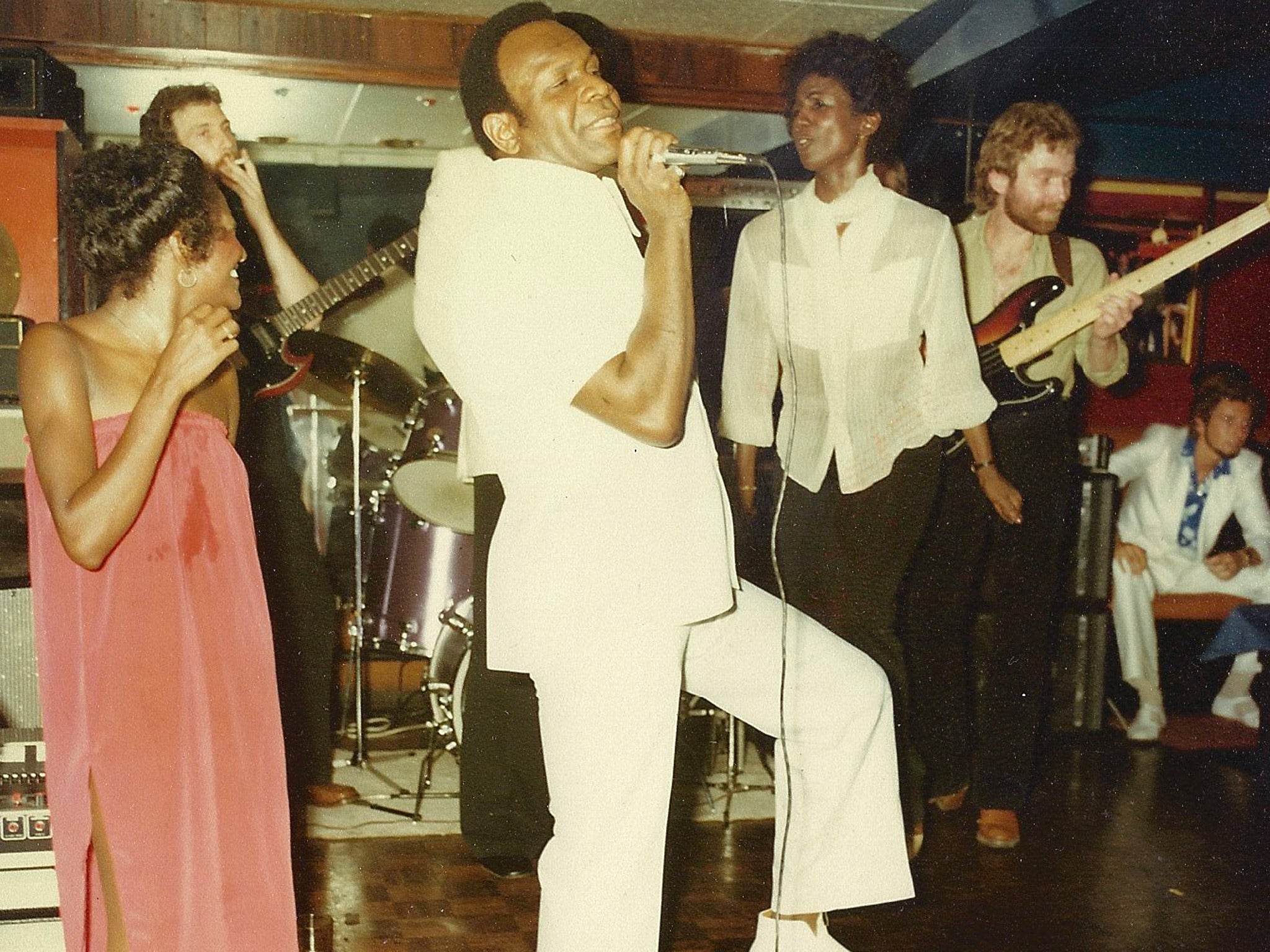Count Suckle: DJ and club owner who came to Britain in 1954 and helped establish Jamaican music as a force in London
CHRIS SALEWICZ

In the later years of his life, the Jamaican deejay and club owner Count Suckle, one of the originators of Jamaican music in Britain, would annually exchange his Rolls-Royce for the latest model. "Suckle had a good business and made money," said his old friend Count Prince Miller, the singer and actor. "He spent it to enjoy it. He was very successful, and was a role model for a lot of Jamaicans coming to this country."
"All the bad things was good for him," said another friend, the musician Freddie Notes. "To run a club as a black man in that era, in the midst of the racism, to stand firm as a man, he deserved big credit.'"
Count Suckle's days driving around London in luxury vehicles were far from the style in which he arrived in Britain in 1954. Having stowed away on a banana boat in Kingston, he entered the UK as an illegal immigrant; homeless and jobless, he was at first reduced to sleeping in empty railway carriages.
Born Wilbert Campbell in Kingston, one of 13 children, Suckle grew up in the rough downtown area around what became Coronation market: his close friends included Duke Vin, later a rival in the UK sound system arena, and the brothers Psycho and Lucky Gordon, who in London became the lover of Christine Keeler. "He was a hard man, and came up in the ghetto, with men like Ivanhoe Martin, the gunman who was played by Jimmy Cliff in the film The Harder They Come" said Freddie Notes. "He knew what it was to be good and what it was to be bad. And he never took the wrong course."
The late 1940s and early 1950s in Kingston saw the development of the uniquely Jamaican form of the sound system – myriad wardrobe-sized speakers playing the latest US big band and r'n'b hits from the likes of Rosko Gordon and Louis Jordan's Tympany 5 at ear-splitting volume, a treat for those unable to afford radios.The significant front runner of these sound systems was named Tom the Great Sebastian: started in 1950, named after a trapeze performer in Barnum and Bailey's circus. This "sound' was avidly followed by Suckle and his friends: Duke Vin managed to become a "selecter" for Tom the Great Sebastian, spinning 78rpm discs; meanwhile, Suckle would sell records at the events.
But it wasn't until he arrived in England, having stowed away with Vin and another companion, that Count Suckle found himself able to emulate his close friend. Following their difficult arrival in Britain, both men managed to find factory work. So funded, Suckle approached "Mr Jackson", legendary in the west London Jamaican community for the skill with which he built amplifiers and speakers. Suckle commissioned a supersized version and by 1955 was playing at parties in the Notting Hill area. Here, however, there was rivalry: Duke Vin had also set up as a sound system operator, and there was a famous "clash" between him and Count Suckle at Lambeth Town Hall in 1956, an event that Vin reputedly won.
It was in 1961 that Suckle really came into his own. He became first the bouncer, then the DJ, at Carnaby Street's Roaring 20s club. Marketed at a black audience, interspersing US r'n'b with the new sound of ska and then reggae, the venue was also hugely popular with white mods and such musicians as Georgie Fame, Mick Jagger, and the Animals.
By 1966 Count Suckle had started his own venue, the Cue Club in Praed Street in Paddington, which continued until the mid-1980s. Consciously upmarket, with a 700-capacity, it was aimed at London's black community. Interspersing the hottest new sounds, direct from Jamaica and the US, with the cream of black acts – the Drifters, Edwin Starr, Ben E King, even Jimi Hendrix – onstage, the Cue club was a colossal success, with a frequently stellar audience: Marvin Gaye, Little Richard, and Bob Marley were patrons, as well as Muhammad Ali and Black Panther Stokely Carmichael.
There were other less welcome visitors. "Once there was an Italian Mafia man in the club, wanting protection money," Freddie Notes recalled. "We bought him drinks and then locked him inside the club. 'We don't pay protection,' Suckle told him. 'You is an idiot.' And then we became friends and he came back and spent thousands of pounds." Also kept away, with generous financial inducements, were local pickpockets.
Living in recent years in some comfort in London's Porchester Square, Count Suckle was a regular at the local steam baths. "He enjoyed his success," reiterated Count Prince Miller. "And he did it straight, with no deviation: he was an honest man, and a great musicologist, who loved life and loved people to the full. It was so brilliant that he managed to succeed with that attitude."
Wilbert Augustus Campbell (Count Suckle), club owner and DJ: born Kingston, Jamaica 12 August 1931; partner to Rosetta Whyte (three children); died London 19 May 2014.
Subscribe to Independent Premium to bookmark this article
Want to bookmark your favourite articles and stories to read or reference later? Start your Independent Premium subscription today.

Join our commenting forum
Join thought-provoking conversations, follow other Independent readers and see their replies